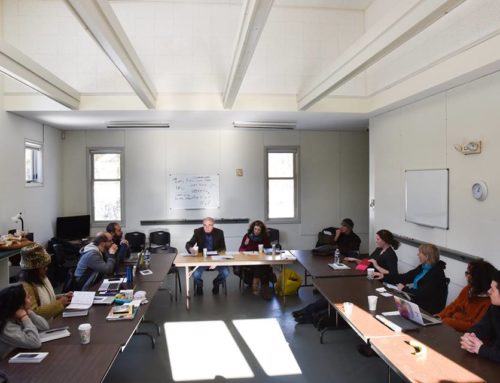It’s about that time in the current term of our MFA program when students are pushing through their first drafts. I’m currently mentoring two student writers and I ask them to send me pages as they begin to accumulate just to keep them on schedule or at least close to their own predetermined timeline. However, I find myself also having to point out an often overlooked truth when it comes to a writer sharing his or her work others and when it’s best to do so–a point I’ve made before in this blog, but is worth repeating.
Regarding releasing your pages for the first time and soliciting feedback, I think it’s best push through a first draft alone before notes from trusted colleagues are looked at and considered. I believe real damage can be done regarding a writer’s process if he or she is hit with notes and reactions while trying to push through a story in draft for the first time. Private discoveries are undoubtedly made along the way between you and your story that are critical to the developing script and “notes” at this phase can sometimes (and even often) short circuit these discoveries. The moment people give you input on your developing script, you won’t be able to get it out of your head, whether it’s positive or negative.
Resisting this urge to share first draft pages as they accumulate helps build an increasingly stronger and more intimate connection between you and your material. It’s as if your relationship with your characters were taking on the deeper sense of trust and mutual confidence that you would have with real people. What’s happening in the play becomes yours and your characters’ own secrets. This, in turn, produces an energy which helps propel you through to the end. Even if you’re stuck on something and go through a few days or even weeks of feeling lost, the experience remains a private one, shared only with you and the people inside your script in the making.
So it’s best to hold off on getting responses to your work until you’ve worked all the way through that initial draft. Then, using all the discoveries made, you can digest any and all notes and go back in and add, subtract, embellish, prop up, and adjust as needed because you’ve first worked your way through on a solo flight, you have all those new private discoveries in your pocket, and you’ll have a definite feel for the whole piece, its overall shape, and where your story needs to land.






Leave A Comment